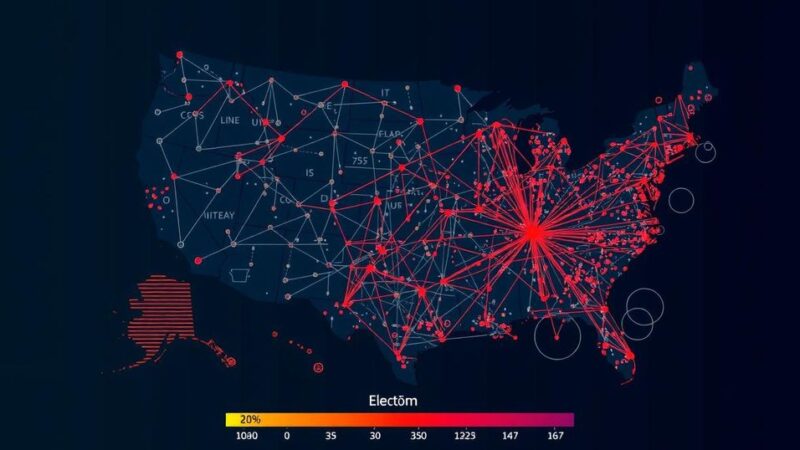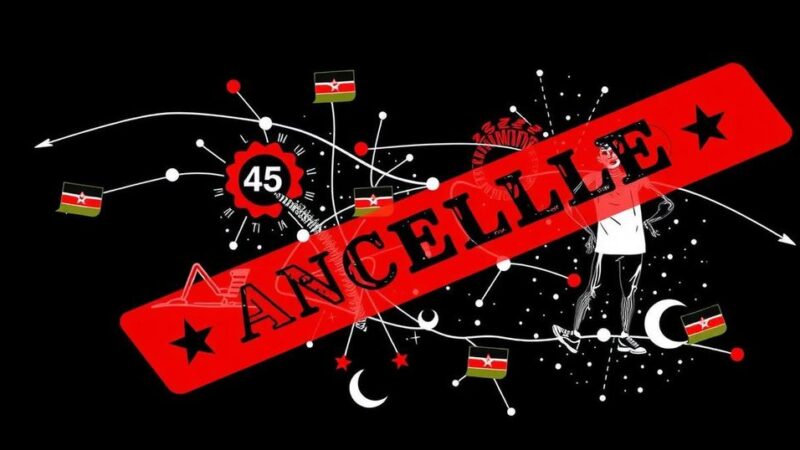Argentina, UAE, and Ethiopia have joined BRICS and commenced Bitcoin mining, utilizing state resources to improve their economies and seek alternatives to the U.S. dollar, while Russia’s sovereign wealth fund invests in Bitcoin mining. This move reflects their need for financial independence amid global instability.
In recent developments, Argentina, the United Arab Emirates (UAE), and Ethiopia have joined the BRICS coalition, which also includes Brazil, Russia, India, China, and South Africa. These three nations are initiating Bitcoin mining efforts by utilizing government resources, seeking to bolster their economies amid financial instability. Concurrently, Russia is enhancing its investment in Bitcoin mining through its sovereign wealth fund, which acts as a major savings mechanism for the nation. Bitcoin mining involves the use of advanced computational technology to solve intricate algorithms that validate transactions within the Bitcoin network. This process results in the addition of new Bitcoin into circulation, rewarding miners in Bitcoin for their contributions. However, it is noteworthy that mining Bitcoin is an energy-intensive and costly endeavor. For countries like Argentina, UAE, and Ethiopia, the pursuit of Bitcoin mining is motivated by the desire for additional income streams and the necessity to establish alternatives to the U.S. dollar. As highlighted by VanEck, a prominent investment firm, these nations are driven by the pressure of deteriorating financial circumstances and economic uncertainty, indicating a strong motivation to pursue financial autonomy through Bitcoin mining. Russia’s involvement further illustrates a strategic initiative to enhance its presence in the cryptocurrency ecosystem, likely aimed at mitigating the impact of U.S. sanctions while fortifying its economic resilience. During challenging times, nations are inclined to innovate their financial strategies, with Bitcoin emerging as a potential avenue for economic reform. Moreover, these countries perceive the reliance on the U.S. dollar as increasingly precarious. A growing sentiment among various nations outside the United States voices concerns regarding excessive American fiscal policies and debts. Consequently, they are exploring Bitcoin as a viable alternative for managing their finances independently of the traditional financial framework dictated by the U.S. dollar.
The integration of Argentina, UAE, and Ethiopia into the BRICS alliance underscores a significant geopolitical shift towards alternative economic practices, especially in cryptocurrency mining. Bitcoin mining serves as an emerging solution for countries facing financial turbulence, enabling them to leverage their resources to create independent financial systems. The broadening of this initiative reflects a growing inclination among nations to explore decentralized currency options to bolster their economies and reduce dependence on the U.S. dollar. This shift aligns with a wider trend of financial diversification wherein countries actively seek to mitigate the repercussions stemming from reliance on traditional financial institutions.
In conclusion, the entrance of Argentina, UAE, and Ethiopia into Bitcoin mining highlights their strategic efforts to cultivate economic independence in an increasingly unstable global financial environment. The actions of these nations, along with Russia’s investment in Bitcoin mining, demonstrate a collective movement among BRICS countries to innovate their financial strategies, emphasizing a desire to reduce reliance on the U.S. dollar. As the landscape of global finance continues to evolve, the role of cryptocurrencies, particularly Bitcoin, is likely to grow in significance.
Original Source: www.altcoinbuzz.io






